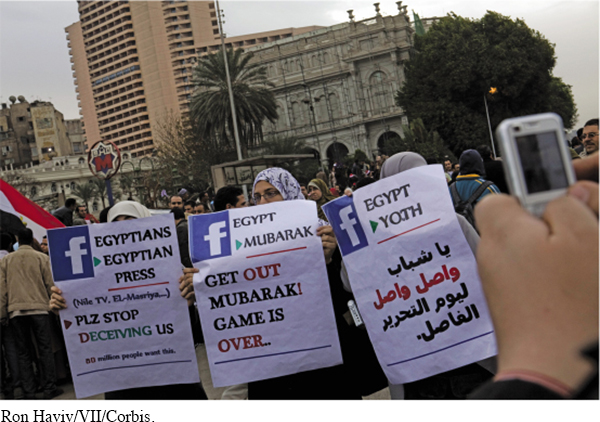Debates over Globalization
Building on efforts by Reagan and Bush, Clinton sought to speed up the growth of a “global marketplace” with new measures to ease restrictions on international commerce. Although the process of globalization was centuries old, new communications technologies such as the Internet and cell phones connected nations, corporations, and individuals at much faster speeds and much lower costs. To advance globalization and the U.S. economy, in 1993 Clinton won congressional approval of the North American Free Trade Agreement (NAFTA), which eliminated all tariffs and trade barriers among the United States, Canada, and Mexico. Fearing loss of jobs and industries to Mexico, a majority of Democrats opposed NAFTA, but Republican support ensured approval. In 1994, the Senate ratified the General Agreement on Tariffs and Trade, establishing the World Trade Organization (WTO) to enforce substantial tariff and import quota reductions among some 135 member nations. In 2005, Clinton’s successor, George W. Bush, lowered more trade barriers with the Central American–
906
The free trade issue was intensely contested. Much of corporate America welcomed the elimination of trade barriers and opportunities to lower their taxes. “Ideally, you’d have every plant you own on a barge,” remarked Jack Welch, CEO of General Electric. Critics, including many Democrats, linked globalization to the loss of good jobs, the weakening of unions, and the growing gap between rich and poor (See “Making Historical Arguments: What Happened to American Manufacturing Jobs, and Why Does It Matter?”) Demanding “fair trade” rather than simply free trade, critics wanted treaties to require decent wage and labor standards. Environmentalists wanted countries seeking increased commerce with the United States to reduce pollution and prevent the destruction of endangered species.

Globalization controversies often centered on relationships between the United States, which dominated the world’s industrial core, and developing nations on the periphery, whose cheap labor and lax environmental standards attracted investors. United Students against Sweatshops, for example, attacked Nike, which paid Chinese workers $1.50 per hour to produce shoes selling for more than $100 in the United States. Yet leaders of developing nations actively sought foreign investment because wages deemed pitiful by Americans often provided their impoverished people a higher standard of living. At the same time, developing countries often pointed to American hypocrisy in advocating free trade in industry while heavily subsidizing the U.S. agricultural sector. “When countries like America, Britain and France subsidize their farmers,” complained a grower in Uganda, “we get hurt.”
While globalization’s cheerleaders pointed to the cheap consumer goods available to Americans and argued that everyone would benefit in the long run, critics focused on the short-